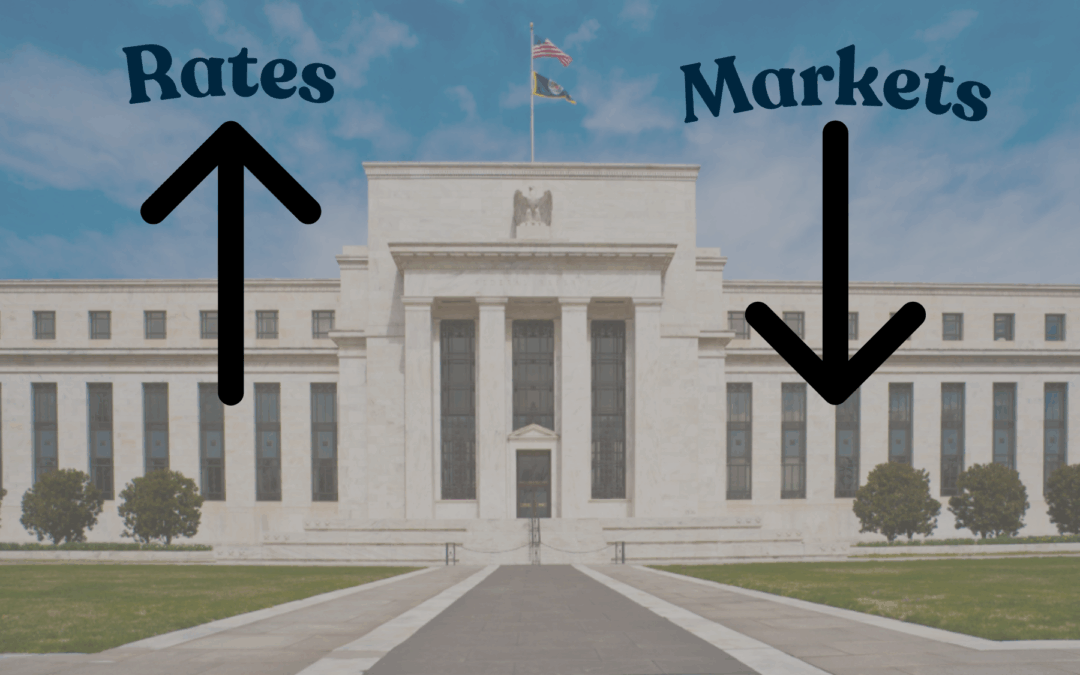By: Ralph C. Freibert III, Chief Investment Officer
Last week’s CPI release was a bit of a disappointment. Almost 1-percent month-over-month (MoM), and 8.58-percent year-over-year (YoY). Economists were hoping for signs that inflation had peaked back in March at 8.54-percent and starting to reverse, but today’s number shows that not only is inflation not leveling, but it continues to accelerate, after a slight reprieve last month (8.26). The real problem today is that the study of economics has moved from the factual to the theoretical, from what it is to what we hope it can be.
For those who have been with us through the years, you will recall our comments regarding the tremendous stimulus and the likely impact it would have on inflation. We stated our opinion in 2020. Now, economic leaders seem surprised by the persistent inflation. Economics 101, more dollars chasing fewer goods creates inflation. Seems simple to me.
Inflation on its own is not bad. It is the cure to out of control inflation that causes the problems. The Federal Reserve (The Fed) is way behind the inflation curve, and they are intent on slowing it down. Their two directives for existence are price stability (moderate inflation) and full employment. Since we are currently at what most would consider full employment, then reigning in inflation is job number one.
The Fed began to raise the Fed Funds Rate and plans to increase the rate by 0.50 percent each month for the next 4 months and perhaps longer. But the recent inflation release implies that the current plan may not be working, and a more aggressive approach may be needed.
The Fed is taking a two-pronged approach right now by raising the Fed Funds Rate and allowing bonds that are on the Fed Balance Sheet to mature without being replaced. The second has the effect of removing some of the printed money introduced to the economy during the stimulus process. They purchased bonds in the open market in 2020 with printed money. When they allow the bonds to mature without being replaced, then that money is withdrawn from the economy. In my opinion, both approaches are necessary for the health of our economy, but that doesn’t mean they won’t be problematic. The mere announcement of this plan had an impact upon the financial markets.
One of the biggest changes is the exit of the Fed as a purchaser of bonds. Since the Fed is allowing the bonds to mature without replacing them, that means billions of dollars will mature this month. In the past, the Fed would then become a buyer of bonds, irrespective of price, to replace the bonds that matured. This has artificially kept bond interest rates somewhat limited. If a big buyer is no longer buying, then the markets are being allowed to float. And remember, the Fed was a buyer at any price. The regular bond market is not a buyer at any price. They want a price that they believe is reasonable, so interest rates on bonds have begun to rise. That should not come as a surprise.
This process unfolding in the markets has far reaching impact to the economy. A great example of this is what may happen in the weeks ahead. Revlon (REV) is rumored to be filing for Chapter 11 bankruptcy. They have $3 billion of bond maturing (50-percent of their total outstanding bonds) in the next two years and a large chunk is coming due this year. If they could have refinanced the bonds at a reasonable rate, they would have done so. This likely will not be the last domino to fall if the current path is continued and here in lies the concern about the markets.
After the announcement of the CPI rate for last month, the world stock markets began a downward march that ended the day almost 3-percent lower than the previous close, and down over 5-percent for the week. A terrible week to say the least and with today’s steep decline, we are in a bear market (down 20%) for the S&P 500. We were at almost the very same point about a month ago, but inflation seemed to show signs of cooling, that is not the case this time.
I have stated that we will likely see a full 20-percent decline in the S&P 500 before we see any improvement. Stock values had become stretched, as discussed in our 2022 Outlook, and the likelihood of a return to more normal valuations seemed inevitable. The good news to all of this is that the economy, for the most part, is still growing. The consumer is still spending, which is why you shouldn’t expect gas prices to decline any time soon. Consumer debt is still very reasonable (though growing rapidly), and savings is still at a high level (personal and corporate). Until we see debt reach a limiting point and savings are spent, you can expect the good ’ole American consumer to do their part.
My suggestion is to be reasonable with spending. Don’t limit yourself constrictively, but don’t push ahead with unnecessary spending. Continue to save in your retirement accounts and reinvest dividends and interest. If you have an upcoming project (next 36 months) then put that money aside to limit liquidation of financial assets.
Companies are making money during inflationary times. If prices are up and they have a 10-percent profit margin, they are making more money on a dollar basis. It may not be more money on a real basis (including inflation), but it is still growth that is represented in stock prices.
I’d like to close with an observation that I hear often when I am discussing gas and oil prices. I appreciate the apparent disconnect, but it is important to address for the simple reason of clarification since I hear it so frequently and it is stated in the news by political pundits. “Why is it that when oil goes up in price, gas prices immediately increase, but when oil goes down gas prices take time to decline? The oil companies are gouging us!” Well, that is not necessarily true.
When oil goes up in price, we know that the cost of production is going to increase. It’s not speculation. Companies are facing an uncertain future. Prices will be higher than they are today so they must respond to the expected cost increase. When prices decline, the oil company has already purchased the oil being refined and it takes time for the price to work its way through the system before the price of the refined product is produced at the lower cost. The follow-up to that explanation is, “Exactly, they are making more profit on the cheaper oil they purchased earlier, so they are gouging me”. But who doesn’t react to a known impact immediately? The increased short-term profit provides protections against the unknown future. And, there is no incentive for oil producers and gas refiners to make any change in production that requires investment because the payoff of such investment is in question.
I am no fan of oil and gas companies. But it is also important to remember that “incentives matter”. I expect inflation to continue until we see some improvement in supply chains, or we experience a recession that reduces demand. The former is preferable, but the latter is becoming more likely.
As always, if you have any questions or concerns regarding this commentary or your accounts, please reach out to our office.
This commentary reflects the personal opinions, viewpoints and analyses of Planning Associates Wealth Management, LLC employees providing such comments, and should not be regarded as a description of advisory services provided by Planning Associates Wealth Management, LLC or performance returns of any Planning Associates Wealth Management, LLC client. The views reflected in the commentary are subject to change at any time without notice. Nothing in this commentary constitutes investment advice, performance data or any recommendation that any particular security, portfolio of securities, transaction or investment strategy is suitable for any specific person. Any mention of a particular security and related performance data is not a recommendation to buy or sell that security. Planning Associates Wealth Management, LLC manages its clients’ accounts using a variety of investment techniques and strategies, which are not necessarily discussed in the commentary. Investments in securities involve the risk of loss. Past performance is no guarantee of future results.


Recent Comments